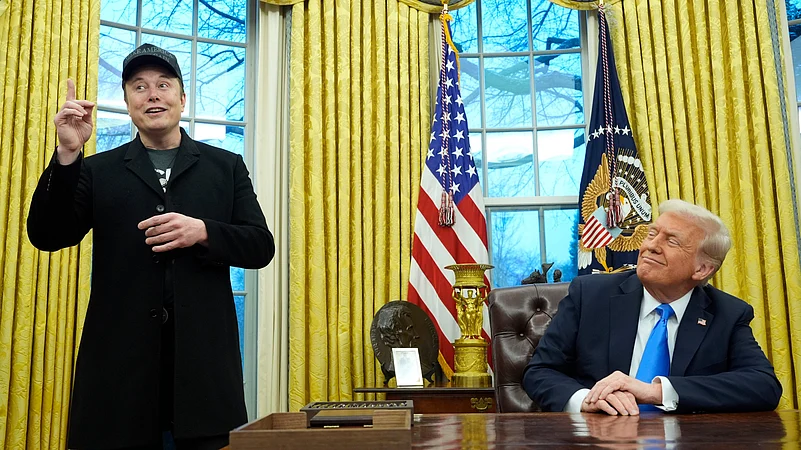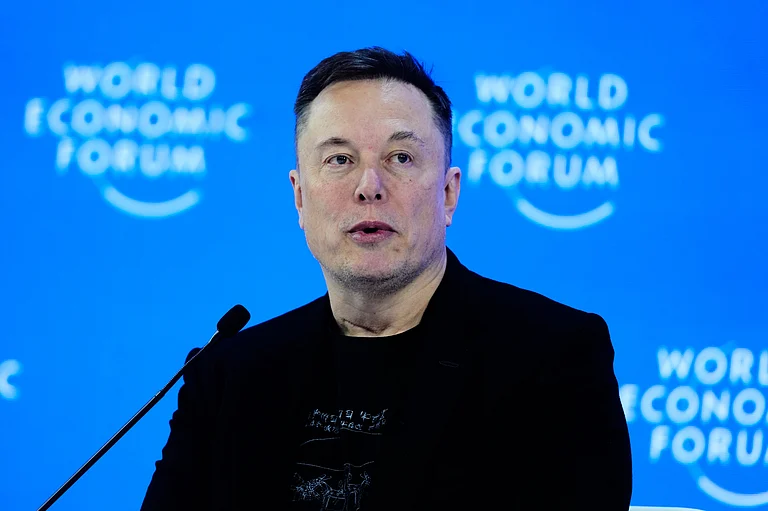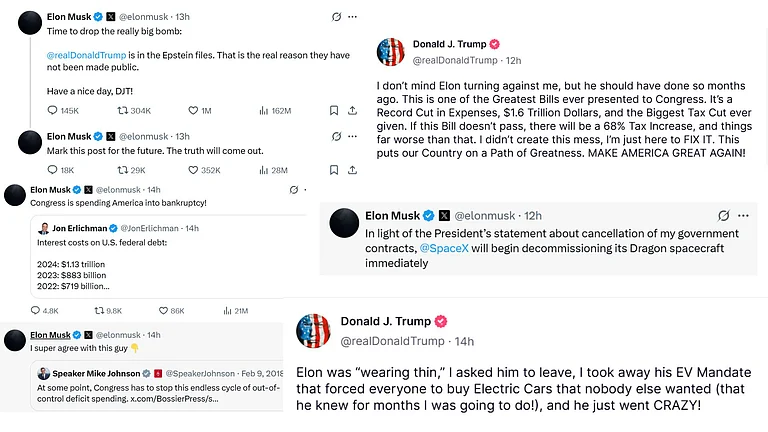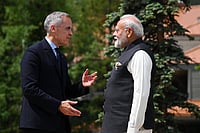Elon Musk has announced the creation of the America Party in a country which has established a predominant two-party system.
Musk — the world’s wealthiest man — made the declaration one day after his former close confidant, U.S. President Donald Trump, signed the ‘Big Beautiful Bill’ into law.
Musk took a poll on X, a social media platform he owns. He asked, “Should we create the America Party?”
He remarked that, on the occasion of America’s Independence Day, citizens should claim independence from the entrenched two-party system, which he described as a uniparty.
After 1,248,856 votes, 65.4% of respondents voted in favour, the Tesla CEO announced that if people wanted a new political party, they shall have it.
“When it comes to bankrupting our country with waste & graft, we live in a one-party system, not a democracy,” he added.
Although, reportedly, the paperwork for his new party remains to be done, he has mentioned in a separate post that the America Party will participate in next year’s midterm elections. As of Saturday, the Federal Election Commission had not released any documents confirming that the party had been formally registered.
His strategy incorporates “Extremely concentrated force at a precise location on the battlefield.” This, he mentioned, is the way he will crack the uniparty system by using a “variant of how Epaminondas shattered the myth of Spartan invincibility at Leuctra.”
Musk Not For President
Musk faces another issue ahead of him. As an individual born in South Africa, he cannot run for President, a mandate in the United States’ constitution. Article II, Section 1 requires a person to be a "natural born Citizen" to be eligible to serve as President. However, he could bankroll other candidates.
The Space X owner poured in at least $250 million supporting Trump in the 2024 presidential campaign as the main contributor to America PAC. He had stated that he does not want to be President, “I want to build rockets and cars,” adding that he would work hard for the Department of Government Efficiency (DOGE) if Trump got elected in the 2024 elections.
At this point, neither the President nor his office has issued any response to Musk’s announcement.
But declaring the America Party represents a further split from the united bloc they appeared to be building before their fallout. Almost a week after the November victory for the Republican leader — Trump said that Musk and businessman Vivek Ramaswamy were to lead a newly minted DOGE.
"Together, these two wonderful Americans will pay the way for my Administration to dismantle the Government Bureaucracy, slash excess regulations, cut wasteful expenditures, and restructure Federal Agencies," Trump said.
Cut to April 2025, Musk announced that he would be stepping back from DOGE, pledging that he would be cutting back on his political expenditure in the future. "Starting next month, I will be allocating far more of my time to Tesla," he had said, eventually leading to his departure from the White House on 28 May.
The Big Beautiful Bill
Soon after, by the first week of June, the two suspended all common courtesy. Musk, publicly and bluntly denouncing the ‘Big Beautiful Bill’— a tax and spending plan — called it a “massive, outrageous, pork-filled Congressional spending bill” “disgusting abomination.”
The measure brings enormous spending pledges and tax reductions and is reportedly projected to add more than $3 trillion to the U.S. deficit over the coming decade. For Musk, who leads electric-vehicle powerhouse Tesla, the bill is notable for what it omits: it contains no significant emphasis on green transition efforts or incentives for products like Teslas.
"Elon may get more subsidy than any human being in history, by far," Trump wrote on his social media platform, Truth Social, this week. "Without subsidies, Elon would probably have to close up shop and head back home to South Africa."
Asked on X what had prompted Musk to shift from supporting Trump to openly criticizing him, he replied: “Increasing the deficit from an already insane $2T under Biden to $2.5T. This will bankrupt the country.”
It is against this backdrop that the multi-billionaire first hinted, then announced the creation of the America Party.
Musk’s Vantage Point
Musk has his own sources of leverage, beyond simply being the world’s richest man—a title he has held for over a year—with a net worth of $406.5 billion. He also runs SpaceX, which launches rockets on behalf of the U.S. government, and oversees Starlink, the satellite network supplying connectivity to American and European defense forces.
Despite these advantages, bypassing the U.S.' two-party system is a task many have attempted and failed. The United States operates within a multi-party system, with the Democratic and Republican Parties as the predominant players. Other parties, including the Reform, Libertarian, Socialist, Natural Law, Constitution, and Green Parties, also participate in presidential elections — but the two parties dominate the political field in all three levels of government.
In the U.S., political candidates are not required to secure the majority of votes—that is, more than 50%—to win an election. Instead, they only need a plurality of votes, meaning a higher percentage than any other candidate running. Since the Democratic and Republican Parties are the two largest political organizations in the country, their candidates usually achieve this plurality. As a result, smaller parties often end up unsuccessful in elections.
US History
The last time a presidential candidate who was not a Republican or Democrat secured electoral votes was in 1968, when five Southern states supported American Independent Party nominee George Wallace, drawing support from white Southerners and blue-collar workers disenchanted with Democratic policies..
Billionaire tycoon Ross Perot received about 19 percent of the popular vote in 1992 and no electoral college votes.
Ralph Nader’s 2000 presidential bid under the Green Party, experts have argued, contributed to such a narrow result in Florida that Republican George W. Bush ultimately won the election only after the Supreme Court intervened. Still, Nader ended up with zero electoral votes.
It remains to be seen how Musk will navigate such historic norms.
Originally from Pretoria, South Africa, Musk moved to Canada before turning 18. He held various jobs, enrolled at Queen’s University in Ontario, and later transferred to the University of Pennsylvania, where he earned a bachelor’s degree in economics.
After being accepted into a physics graduate program at Stanford University, Musk left after only two days because he felt that the Internet had much more potential to change society than work in physics. He launched two technology start-ups during the "dotcom boom" of the 1990s.
These ventures included a web software company and an online banking firm that ultimately evolved into PayPal. He invested much of his earnings into a new rocket enterprise, SpaceX—which he envisioned as a cost-effective alternative to NASA—and an electric car company, Tesla, where he served as board chair before becoming chief executive in 2008.

























